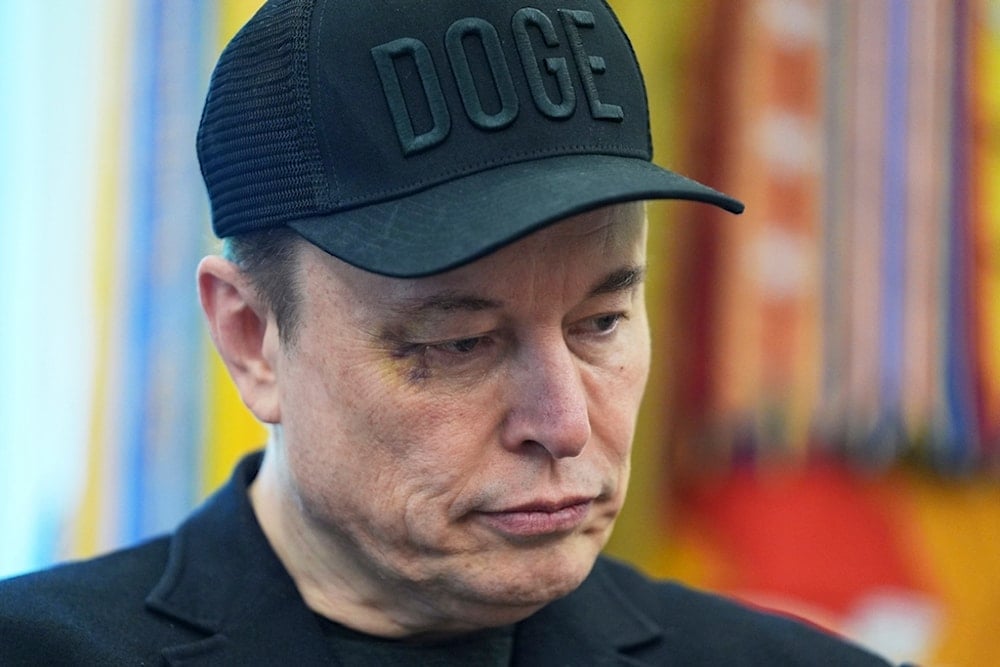Elon Musk proposes new 'America Party' in bid to disrupt US politics
Musk outlined a tactical plan for the new party to gain immediate influence by targeting a small number of strategically significant congressional races.
-

Elon Musk attends news conference with President Donald Trump in the Oval Office of the White House, Friday, May 30, 2025, in Washington (AP Photo/Evan Vucci)
Elon Musk reignited debate over the US political system on Friday by proposing the formation of a third political force, the "America Party", in a pointed challenge to what he described as the nation's dysfunctional two-party (or "uniparty") establishment. Posting on X during Independence Day, Musk framed the moment as an opportunity to reimagine American democracy, launching a poll in which nearly 150,000 users participated. As of early afternoon, 63.8% said they supported the initiative.
"Independence Day is the perfect time to ask if you want independence from the two-party (some would say uniparty) system! Should we create the America Party?" Musk wrote.
Independence Day is the perfect time to ask if you want independence from the two-party (some would say uniparty) system!
, Elon Musk (@elonmusk) July 4, 2025
Should we create the America Party?
He outlined a tactical plan for the new party to gain immediate influence by targeting a small number of strategically significant congressional races. "One way to execute on this would be to laser-focus on just 2 or 3 Senate seats and 8 to 10 House districts. Given the razor-thin legislative margins, that would be enough to serve as the deciding vote on contentious laws, ensuring that they serve the true will of the people," Musk explained.
Flashpoint Legislation
His comments coincided with the contentious passage of President Donald Trump's massive legislative package, the One Big Beautiful Bill (OBBB), which Musk has sharply denounced. He dubbed the Republican Party the "Porky Pig Party" and warned that GOP lawmakers who backed the bill could face primary challenges.
The OBBB has become a flashpoint in US politics, not only for its sweeping provisions, including corporate tax cuts, rollback of healthcare protections, and reductions in clean energy incentives, but also for how it was pushed through Congress. The bill passed the House in a narrow 218–214 vote after a historic 8-hour filibuster-style speech by Democratic Leader Hakeem Jeffries and protests in the Capitol rotunda that resulted in several arrests.
Fiscal watchdogs estimate the legislation could add up to $3.9 trillion to the national debt, while stripping healthcare coverage from nearly 11 million people and triggering the loss of over 800,000 clean energy jobs. Critics have described it as a tool of class warfare dressed in populist rhetoric, benefiting corporations and the ultra-wealthy while gutting social protections for ordinary Americans. These concerns have fueled backlash from across the ideological spectrum, with even some Republicans distancing themselves from the bill's implications.
Elite Fallout
Musk's opposition to the OBBB, and his broader critique of the political establishment, drew a fiery response from Trump. In a post on Truth Social, the president lashed out: "Close up shop and head back home to South Africa," he wrote, alluding to Musk's country of birth. Trump then proposed slashing government support for space launches, satellite programs, and electric vehicle subsidies, saying such cuts "could save the country a fortune." He added that DOGE, a nod to Musk's past cryptocurrency ventures, should "take a good, hard look at this," and warned that Musk "should not be playing that game with" him.
Read more: US House passes Trump’s $3.9T 'One Big, Beautiful Bill'
With midterms on the horizon and the electorate splintering under the weight of economic precarity and cultural warfare, Musk's push for a third party signals not only personal defiance but a broader crisis of political legitimacy, and the potential for new, unpredictable alignments in American politics.

 4 Min Read
4 Min Read










